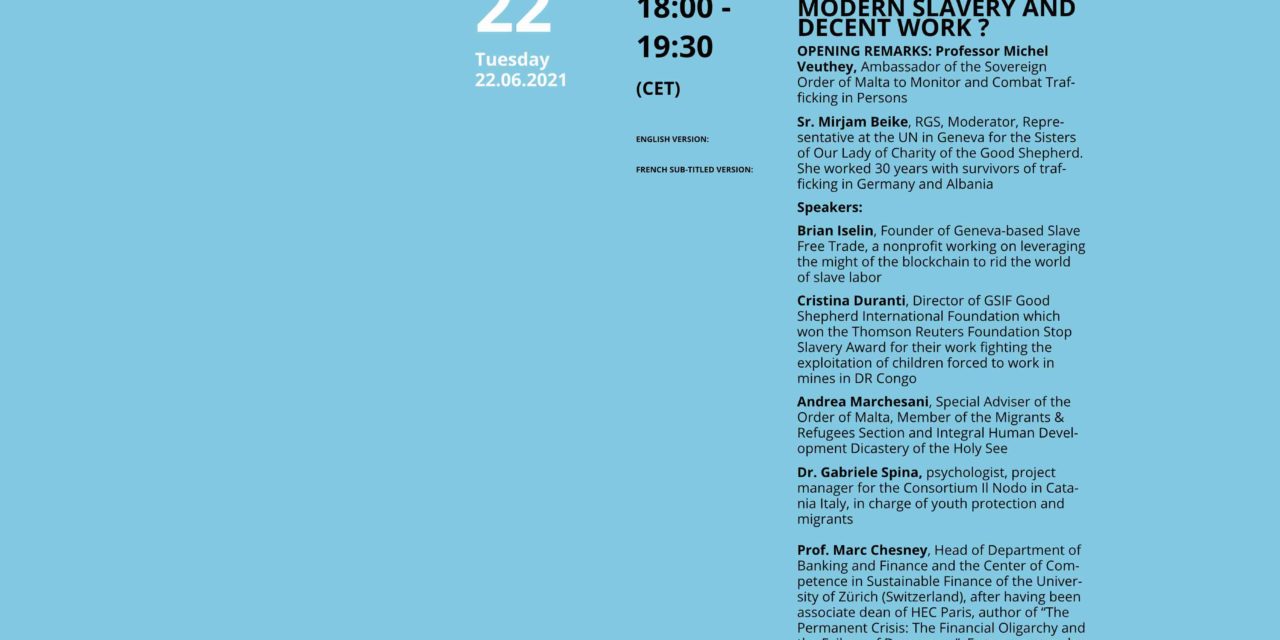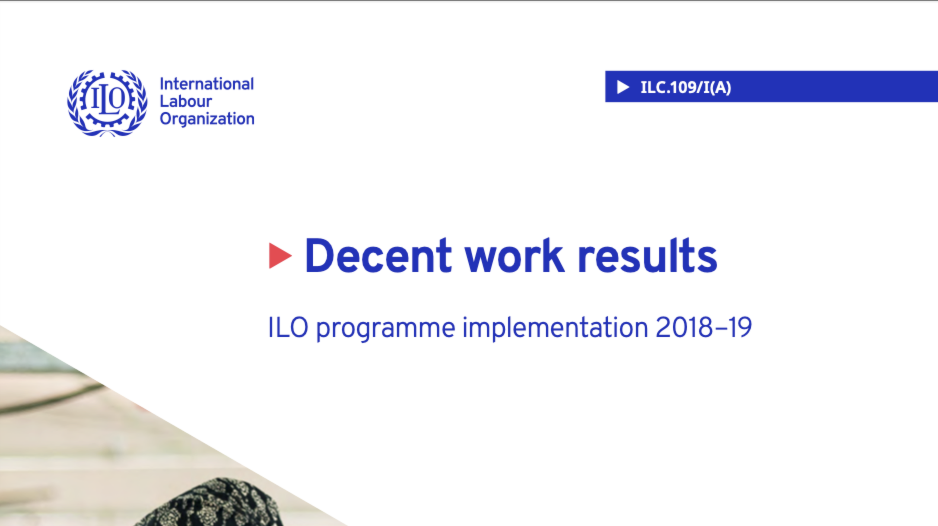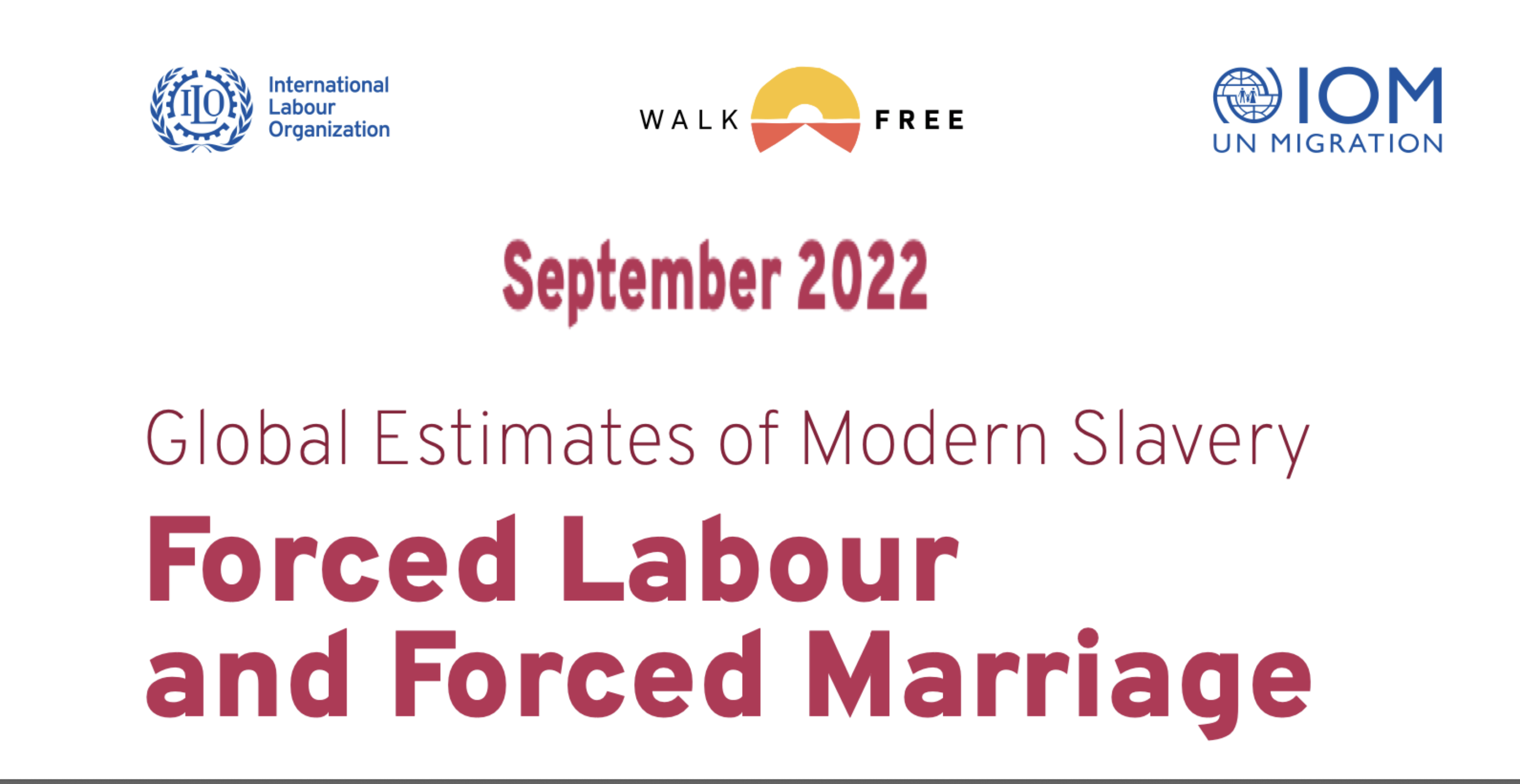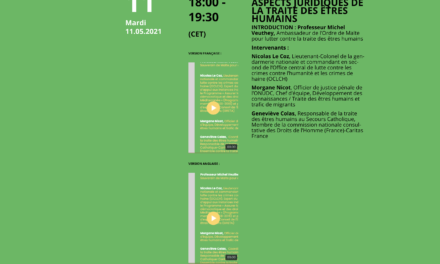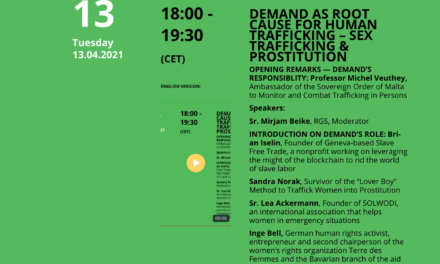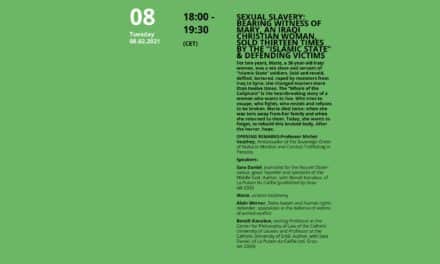Modern Slavery and Decent Work
Join us for a better understanding of the growing phenomenon of modern slavery, through the intersecting perspectives of an economist Professor Marc Chesney, a victim assistance expert Cristina Duranti and a supply chain specialist Brian Iselin, a representative of the Vatican’s Migrants & Refugees — Integral Human Development section Andrea Marchesani and a psychologist Dr. Gabriele Spina helping migrants and young people who work in a hyper-competitive economy that all too often functions with underpaid jobs. As our previous seminars have demonstrated, a new approach based on the demand for goods and services related to human trafficking should be developed by all actors, governments, to reduce and eradicate modern slavery.
- 1. Opening Remarks by Professor Michel Veuthey, Ambassador of the Sovereign Order of Malta to monitor and combat trafficking in persons
- 2. Sr. Mirjam Beike, RGS, Moderator, Representative at the UN in Geneva for the Sisters of Our Lady of Charity of the Good Shepherd. She worked 30 years with survivors of trafficking in Germany and Albania
- 3. Brian Iselin, Founder of SLAVE FREE TRADE monitoring supply chains and creating tools to empower consumers
- 4. Cristina Duranti, Director of GSIF Good Shepherd International Foundation which won the Thomson Reuters Foundation Stop Slavery Award for their work fighting the exploitation of children forced to work in mines in DR Congo
- 5. Andrea Marchesani, Special Adviser of the Order of Malta, Member of the Migrants & Refugees Section and Integral Human Developpment Dept. of the Holy See
- 6. Dr. Gabriele Spina, psychologist, project manager for the Consortium Il Nodo in Catania Italy, in charge of youth protection and migrants
- 7. Prof. Marc Chesney, Head of Department of Banking and Finance and the Center of Competence in Sustainable Finance of the University of Zürich (Switzerland), after having been associate dean of HEC Paris, author of “The Permanent Crisis: The Financial Oligarchy and the Failure of Democracy”, for many years he has been developing a critical analysis of the financial sector and its consequences on the real economy and on working conditions

